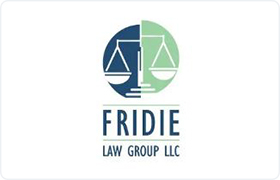Rancocas Child Custody Lawyer, New Jersey
Sponsored Law Firm
-
 x
x

Click For More Info:
-
Fridie Law Group L.L.C.
101 Route 130 Suite 306, Madison Building Cinnaminson, NJ 08077» view mapDivorce & Family Law We Fight For Your Rights
Reach out to us today for legal help on your case. We're available for free consultations and return all calls and emails within 24 hours.
800-859-9690
Includes: Guardianships & Conservatorships, Custody & Visitation
Michael Stein
✓ VERIFIEDDivorce, Domestic Violence & Neglect, Child Custody, Alimony & Spousal Support, Traffic
The law office of Michael J. Stein has been an integral part of the surrounding communities of Burlington County for more than a decade. We help fam... (more)
James R. Fridie
✓ VERIFIEDDivorce & Family Law, Criminal, Child Custody, Family Law, Estate
SKILLED GUIDANCE THROUGH TURBULENT TIMES
I am the founder and owner of the Fridie Law Group LLC. We are a full-service litigation firm with a concentration in Family Law, Criminal Law, Elder ... (more)
Steven A. Aboloff
Business Organization, Estate Administration, Estate Planning, Guardianships & Conservatorships
Status: In Good Standing
Christopher R. Musulin
Custody & Visitation, Child Custody, Divorce & Family Law, Divorce
Status: In Good Standing
Melissa Fecak
Domestic Violence & Neglect, Child Support, Child Custody, Divorce & Family Law
Status: In Good Standing Licensed: 24 Years
Gary L. Borger
Adoption, Divorce, Child Custody, Family Law
Status: In Good Standing Licensed: 48 Years
Richard C Klein
Child Custody, Divorce & Family Law, Defamation & Slander
Status: In Good Standing Licensed: 51 Years
Robyn Bryson Flynn
Alimony & Spousal Support, Divorce, Child Support, Child Custody
Status: In Good Standing
 James Fridie Cinnaminson, NJ
James Fridie Cinnaminson, NJ Practice AreasExpertise
Practice AreasExpertise


